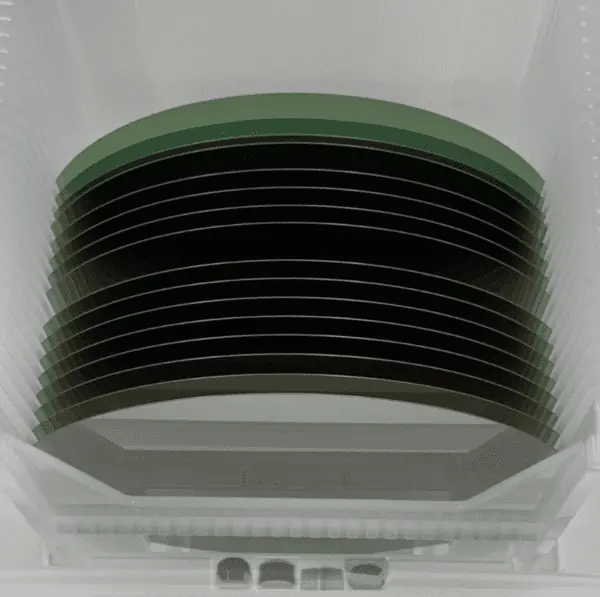
(Source: Halo Industries)
By Adele Hars
What’s at stake:
Investors are hot on the silicon carbide market, but the high cost of the wafers is an impediment to high volumes. Halo Industries, a startup just coming out of stealth mode, claims it has a solution that saves on the time, cost, and energy required to slice the SiC boules (ingots) into wafers. It’s got a big client and strong funding, but it has an unusual business strategy and is up against some much bigger players. Will Halo be able to scale to high volume fast enough to beat the competition?
Silicon carbide wafers are extremely expensive — anywhere from 20 to 50 times pricier than silicon. The drivers of the cost differential begin at the very beginning, with the weeks that the starting SiC boules spend in furnaces that are almost half as hot as the sun. The inefficiencies mount as the boules are cut with diamond wire saws, wherein up to 40% of the boule ends up as waste (or the more technical term, kerf), in the form of SiC dust lost in the sawing process. Yields are terrible, and the sawing process takes hours per wafer. Andrei Iancu, CEO and founder of Halo Industries, told the Ojo-Yoshida Report that his company’s laser systems are intended to replace saws, virtually eliminating waste and improving yield quality.
